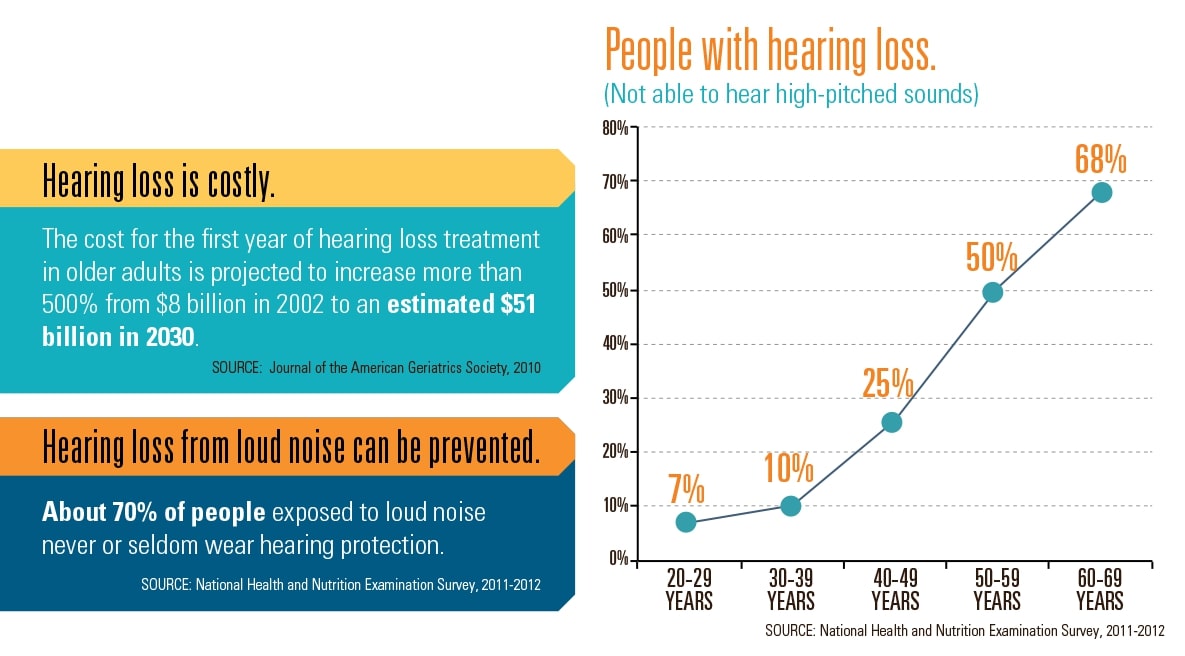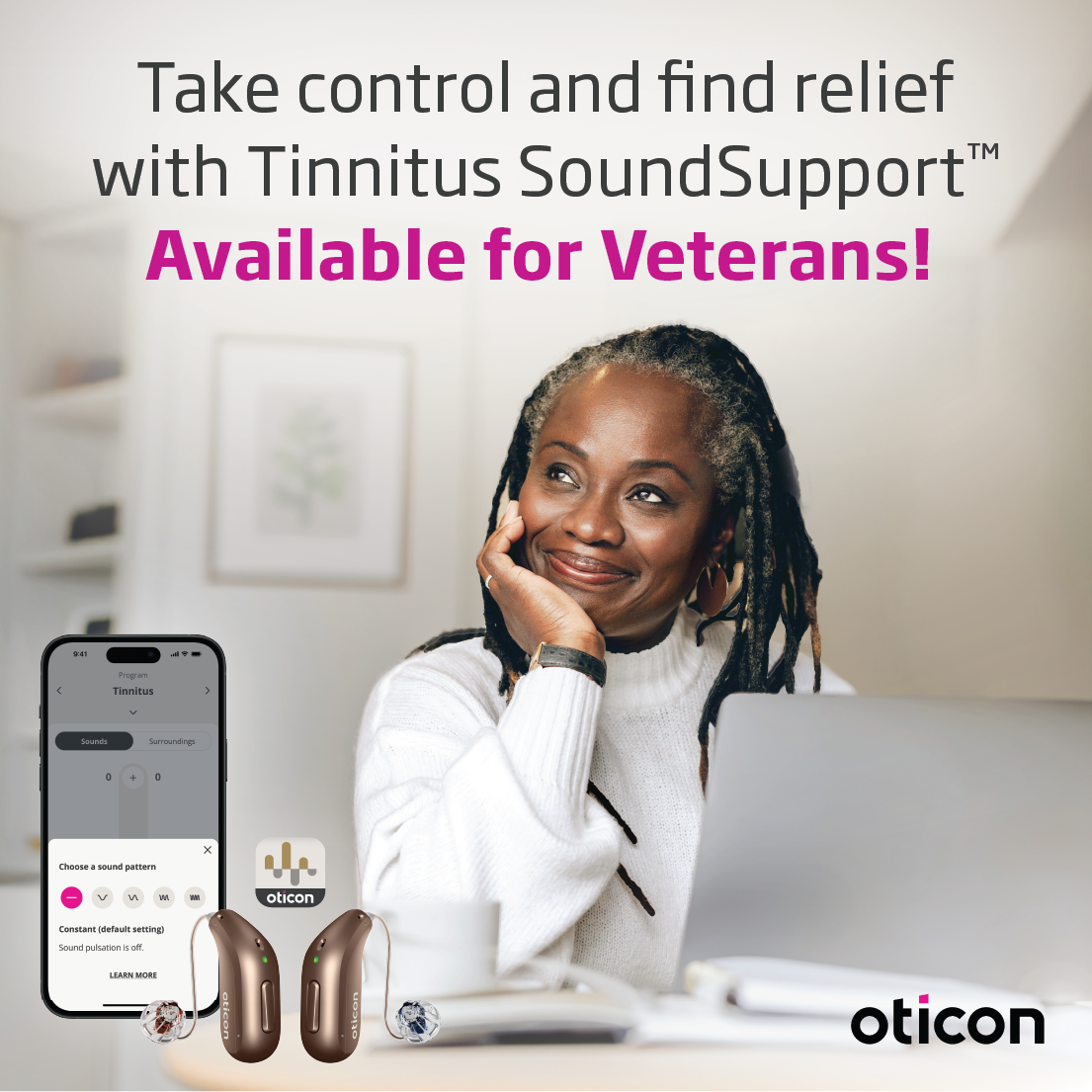|
www.HealthyHearing.com |
Hearing loss statistics at a glanceIn the US, hearing loss and tinnitus are common, especially in older adults
Contributed by Joy Victory, managing editor, Healthy Hearing Key points:
Hearing loss is the third most common chronic physical condition behind arthritis and heart disease, affecting people of all ages. It is especially common among older adults and veterans. This is what hearing loss looks like by the numbers from a variety of sources: Hearing loss statistics_300x225.jpg)
with their hearing. Hearing loss facts in generalAccording to the National Institutes of Health, the Hearing Loss Association of America (HLAA) and the World Health Organization:
Hearing loss statistics in older adultsIt's well known that hearing loss is more common among older adults, known as presbycusis.

Noise-induced hearing lossOne of the most common ways people damage their hearing is through excessive noise exposure, leading to noise-induced hearing loss (NIHL). About one out of every five workers is exposed to hazardous noise in the workplace. The CDC reports these numbers on NIHL:
Stats on hearing loss in children
Hearing loss among veteransOn-the-job exposure is particularly common among U.S. Veterans, who can access VA services for hearing aids. According to the HLAA:
Tinnitus statisticsHearing loss and tinnitus are often related conditions and are very common in older adults and veterans. However, statistics about its prevalence vary. In the US, the most recent research determined that tinnitus affects about 11% of adults, according to a 2024 analysis published in The Lancet Regional Health journal. Meanwhile, a 2020 cross-sectional study of European older adults found high levels of tinnitus in the general population (about 20%), and that number doubled among older adults who had hearing loss. A German study showed tinnitus was very common (around 1 in 4 people reported experiencing it), As the authors noted: "Tinnitus is a common problem. We found that one in four people in our cohort suffers from it. In general, men are affected more often than women. As hearing loss progresses, the prevalence of tinnitus increases. Despite the high prevalence of tinnitus, only a minority of patients seem to consult a doctor." Hearing aid and hearing care statisticsHow many people wear hearing aids?2022 MarketTrak data shows that:
Hearing loss and health issuesThe MarkeTrak 2022 survey also found that those with hearing difficulty have higher rates of many common conditions and are over 3.5 times more likely to have tinnitus, cognition/memory issues, and falling and balance issues. People who don't wear hearing aids are at a greater risk of depression that increases with severity of hearing difficulty. Additionally:
For all these reasons, hearing aids are good for your health and your mind. Joy Victory, managing editor, Healthy Hearing
|
Featured clinics near me
Earzlink Hearing Care - Reynoldsburg
7668 Slate Ridge Blvd
Reynoldsburg, OH 43068


Find a clinic
We have more hearing clinic reviews than any other site!


 Joy Victory has extensive experience editing consumer health information. Her training in particular has focused on how to best communicate evidence-based medical guidelines and clinical trial results to the public. She strives to make health content accurate, accessible and engaging to the public.
Joy Victory has extensive experience editing consumer health information. Her training in particular has focused on how to best communicate evidence-based medical guidelines and clinical trial results to the public. She strives to make health content accurate, accessible and engaging to the public.